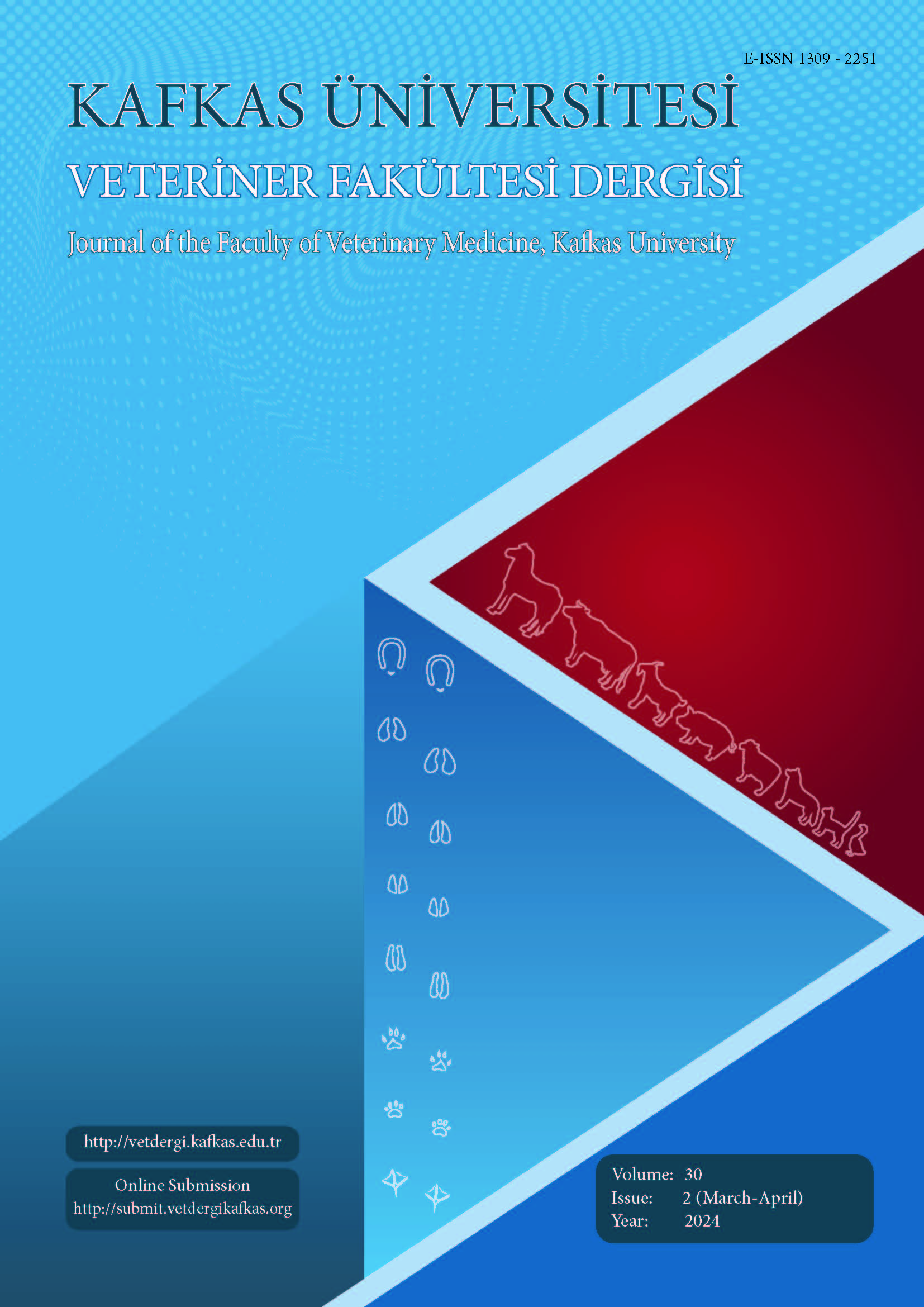
This journal is licensed under a Creative Commons Attribution-NonCommercial 4.0 International License
Kafkas Üniversitesi Veteriner Fakültesi Dergisi
2024 , Vol 30 , Issue 2
Effect of Dietary Glycerol Addition on Growth Performance, Serum Biochemical Indexes, Carcass Traits, Fat Deposition, and Meat Quality in Fattening Period Kazakh Sheep
1Shihezi University, Collage of Animal Science & Technology, Xinjiang 832003, P. R. CHINA
DOI :
10.9775/kvfd.2023.31020
Glycerol has been evaluated as a safe and promising animal feed. It can replace traditional energy foods and reduce competition with major animal husbandry systems. In this study, 40 fattening Kazakh ewes (18 months of age) were selected to investigate the dynamic response of growth performance, serum biochemical indexes, fat deposition, carcass traits and meat quality to different levels of glycerol (0, 1%, 7%, and 12% DM). The results showed that glycerol could improve sheep growth performance, increase fat deposition, increase carcass dressing percentage and improve meat quality. Among them, the Gly7% group had significant positive effects (P<0.05) on FBW, ADG, GLU, TP, ALB, TG, HDL-C, fat deposition, HCW, CCW, HCD and EE; and significant negative effects (P<0.05) on FCR, ADFI, TC, LDL-C, a*, b* and SF. In conclusion, the recommended supplementation of glycerol in the diet of Kazakh ewes is 7% DM for optimal fattening performance without compromising health. This study may provide a theoretical basis for the rational utilization of food-grade glycerol in sheep diets.
Keywords :
Kazakh sheep, Glycerol, Fat deposition, Growth performance, Carcass traits










